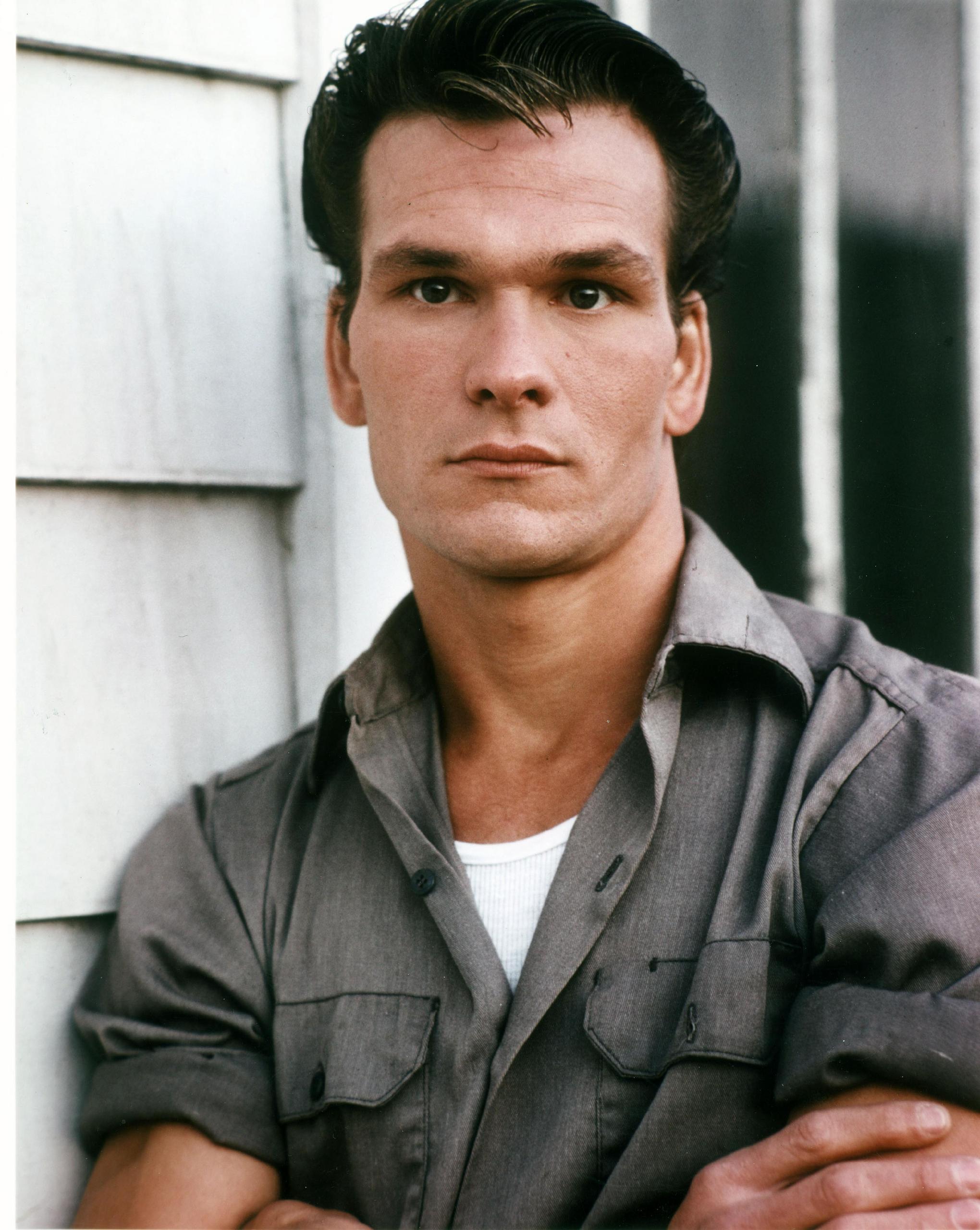Patrick Swayze, one of the most celebrated actors of his generation, left a lasting impact on Hollywood and the hearts of millions. His untimely death was the result of a battle with pancreatic cancer, a disease that claimed his life in 2009. This article delves into the details of his diagnosis, treatment journey, and the legacy he left behind. Join us as we explore the life, career, and final days of this legendary figure.
Patrick Swayze's journey in the entertainment industry began with humble beginnings but quickly skyrocketed with roles in iconic films such as "Dirty Dancing" and "Ghost." Despite his fame, Swayze remained grounded and dedicated to his craft until the very end. His passing was a shock to fans worldwide, leaving many to wonder what exactly led to his death.
This article aims to provide a detailed exploration of Patrick Swayze's life, his battle with pancreatic cancer, and the lessons we can learn from his story. By understanding the challenges he faced, we can better appreciate his legacy and the contributions he made to the world of cinema.
Read also:Empower Your Day With Bjackson Good Morning Quotes
Table of Contents
- Biography of Patrick Swayze
- Patrick Swayze's Pancreatic Cancer Diagnosis
- Treatment Journey and Challenges
- Impact on Career and Final Projects
- Life After Diagnosis
- Family and Support System
- Legacy of Patrick Swayze
- Pancreatic Cancer Awareness
- Statistics and Research on Pancreatic Cancer
- Conclusion
Biography of Patrick Swayze
Early Life and Background
Patrick Swayze was born on August 18, 1952, in Houston, Texas. He grew up in a family deeply rooted in the arts, with his mother, Patricia Swayze, being a dance instructor. From a young age, Swayze was exposed to the world of dance, which would later become a defining aspect of his career.
Below is a summary of Patrick Swayze's personal information:
| Full Name | Patrick Wayne Swayze |
|---|---|
| Date of Birth | August 18, 1952 |
| Place of Birth | Houston, Texas |
| Occupation | Actor, Dancer, Musician |
| Years Active | 1970–2009 |
Rise to Fame
Swayze's breakthrough came with the 1987 film "Dirty Dancing," where he played the role of Johnny Castle. The film became a cultural phenomenon, earning him widespread acclaim and a place in Hollywood history. His charisma and talent as a dancer set him apart from his peers, making him a household name.
Patrick Swayze's Pancreatic Cancer Diagnosis
In January 2008, Patrick Swayze was diagnosed with pancreatic cancer, a disease that is notoriously difficult to treat. The diagnosis came as a shock to both Swayze and his fans, as he had been in seemingly good health until that point.
Pancreatic cancer is often referred to as a "silent killer" because it typically presents no symptoms in its early stages. By the time it is detected, the cancer has often progressed to an advanced stage, making treatment more challenging.
Treatment Journey and Challenges
Initial Treatment Plan
Upon receiving his diagnosis, Swayze underwent aggressive treatment, including chemotherapy and radiation therapy. Despite the grueling nature of these treatments, Swayze remained committed to his career and continued working on various projects.
Read also:My Sweet Sixteen Natalie A Comprehensive Guide To Celebrating The Special Day
- Chemotherapy: Swayze underwent multiple rounds of chemotherapy to shrink the tumor.
- Radiation Therapy: This treatment was used to target specific areas affected by the cancer.
- Experimental Treatments: Swayze participated in clinical trials for new treatments, hoping to extend his life.
Physical and Emotional Challenges
The treatment process took a toll on Swayze's physical and emotional well-being. However, his determination and positive outlook inspired many. He often spoke about the importance of staying hopeful and fighting the disease with everything he had.
Impact on Career and Final Projects
Despite his diagnosis, Patrick Swayze continued to work on several projects, showcasing his dedication to his craft. One of his final roles was in the TV series "The Beast," which premiered in 2009. The show was well-received, and Swayze's performance was praised by critics and audiences alike.
His ability to balance treatment and work highlighted his resilience and passion for acting. Swayze's final projects remain a testament to his unwavering commitment to his career.
Life After Diagnosis
Public Awareness and Advocacy
After his diagnosis, Swayze became an advocate for pancreatic cancer awareness. He used his platform to educate the public about the disease and the importance of early detection and research funding. His efforts helped bring much-needed attention to this often-overlooked illness.
Personal Reflections
In interviews, Swayze spoke candidly about his experience with cancer and the lessons he learned. He emphasized the importance of family, faith, and perseverance in the face of adversity. His words continue to inspire those facing similar challenges today.
Family and Support System
Throughout his battle with cancer, Patrick Swayze was supported by his wife, Lisa Niemi, and their close circle of friends and family. Their unwavering support played a crucial role in helping him navigate the difficult journey.
Lisa Niemi, a former dancer and choreographer, was by Swayze's side until his final days. Their love story remains an inspiring example of devotion and partnership in the face of hardship.
Legacy of Patrick Swayze
Patrick Swayze's legacy extends far beyond his acting career. He will forever be remembered for his iconic roles, his passion for dance, and his courageous battle with pancreatic cancer. His contributions to the entertainment industry and cancer awareness continue to impact lives around the world.
Swayze's films, such as "Dirty Dancing," "Ghost," and "Red Dawn," remain beloved classics that resonate with audiences of all ages. His impact on popular culture is undeniable, and his work continues to inspire new generations of actors and dancers.
Pancreatic Cancer Awareness
Understanding the Disease
Pancreatic cancer is one of the deadliest forms of cancer, with a five-year survival rate of approximately 10%. Early detection remains a significant challenge, as symptoms often do not appear until the disease has progressed to an advanced stage.
Research into pancreatic cancer is ongoing, with scientists and medical professionals working tirelessly to develop new treatments and improve outcomes for patients. Increased awareness and funding are critical to advancing this research.
Statistics and Research on Pancreatic Cancer
According to the American Cancer Society, pancreatic cancer accounts for about 3% of all cancers in the United States but is responsible for approximately 7% of cancer deaths. The disease is more common in older adults, with the average age at diagnosis being 70.
Recent studies have identified potential genetic markers that may help predict an individual's risk of developing pancreatic cancer. These advancements offer hope for early detection and personalized treatment options in the future.
Conclusion
Patrick Swayze's life and career were marked by passion, dedication, and resilience. His battle with pancreatic cancer was a testament to his strength and determination, inspiring countless individuals around the world. Through his work and advocacy, Swayze left a lasting legacy that continues to impact the lives of many.
We invite you to share your thoughts and reflections on Patrick Swayze's life and legacy in the comments below. Additionally, consider exploring other articles on our site that delve into important health and wellness topics. Together, we can continue to honor Swayze's memory and the contributions he made to the world of entertainment and cancer awareness.


